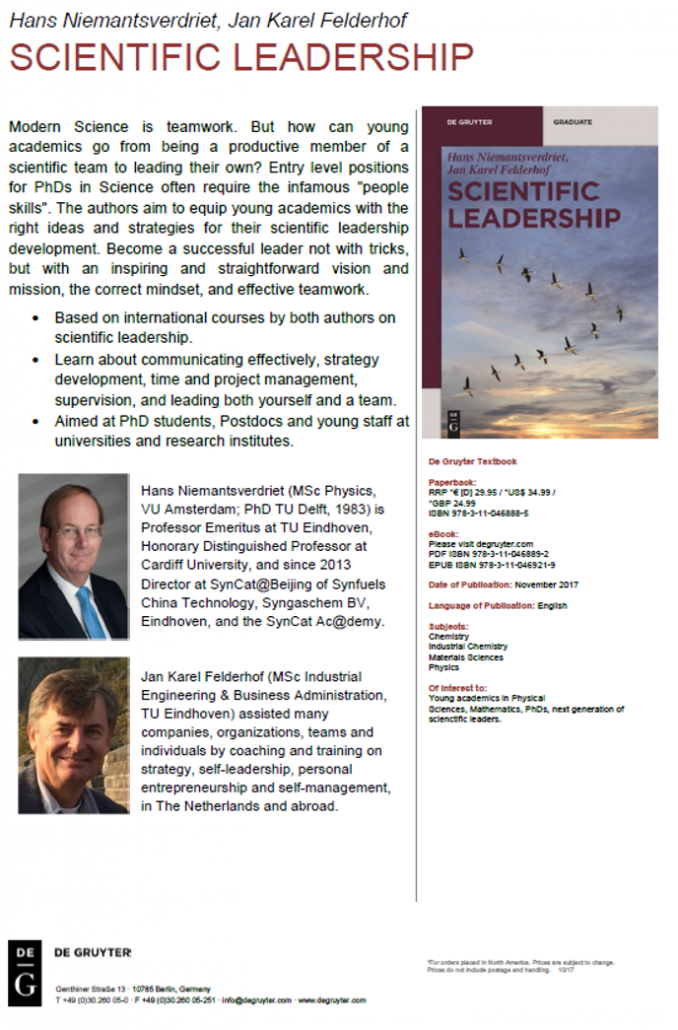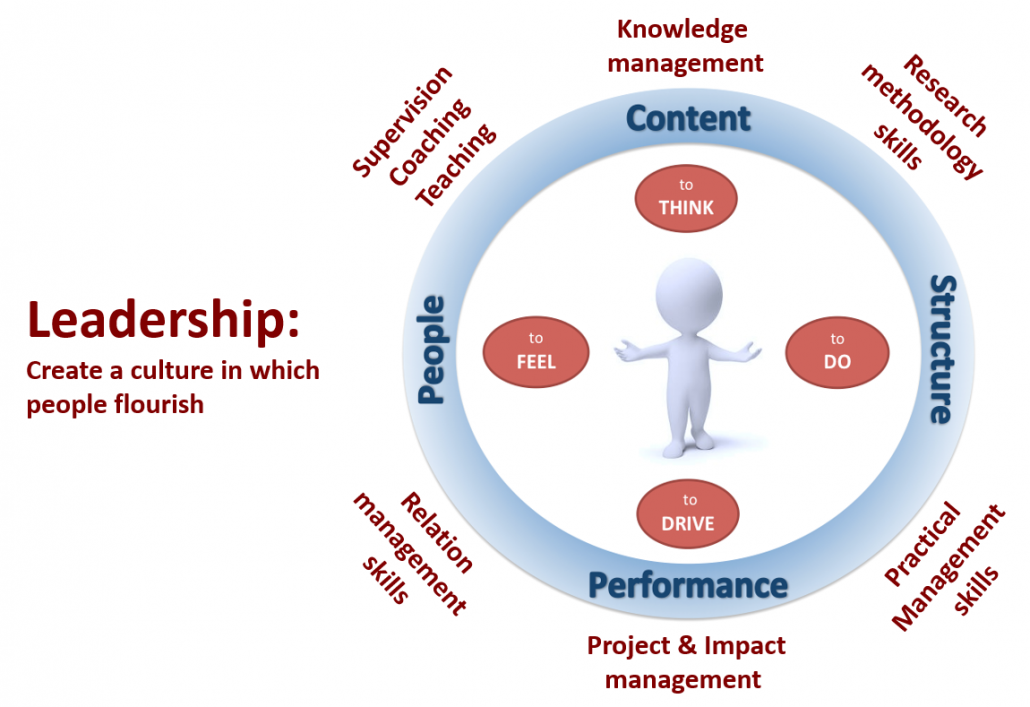Scientific Leadership
for young academics
established professors, R&D directors
SynCat Academy for Scientific Leadership
The SynCat Course Program in Scientific Leadership is based on the practical experience of Hans Niemantsverdriet as a professor, director, editor and consultant in research and education, and the long-time experience of Jan Karel Felderhof in leadership theories.
Our Book
The essence of the program is presented in a book which appeared with DeGruyter, Berlin.
For more information click here
Our Online Academy
will be available on February 1, 2018!
Our online academy also offers effective tools to test your abilities and to coach yourself, to estimate if your performance is balanced, to test your understanding of the forces that govern inter human relationships, and even to make a grand plan for achieving your goals in scientific world, be it to lead an acclaimed research group, or to become a great educator who prepares students for a successful role in society.
To access Online Academy click here
Our Course Program
In our course program we offer insight in many skills and insights that a self-leader in science needs. The authors are available for presenting introductory programs of flexible length (between a half day and two days). They have done this at universities and companies in several countries, such as China, India, Singapore, South Africa, and Europe.
Our Website
This website presents a summary and is freely available to every person who is interested.
In the press
The online magazine “Research Features” published an article in their series “Thought Leaders” based on an interview with Hans Niemantsverdriet in the Spring of 2018, and is freely available online.
Happy Reading!
Introduction
Let’s assume you are a young academic.
You have been appointed as assistant or associate professor at a well-established university a few years ago and you are working hard to become an acknowledged scientist in your research field. You have a dream about an important scientific challenge that you hope to solve in the coming years. You are definitely qualified for your job, because you hold a PhD from a good university, you successfully finished a couple of postdocs positions at internationally renowned research institutions, you published together with famous scientists, you have several articles in high-impact journals and you present talks at important conferences, such that your peers are starting to know and respect you, you succeeded in getting a grant from your national science organisation to fund a substantial part of your research. You have a few PhD students and a postdoc working for you, each on their own interesting project. Your teaching load may be substantial, but the students appreciate your enthusiastic lectures and some like to work for you in laboratory projects. In other words, it seems that you are well on your way in your scientific career.
You are working long hours every day and the balance between private and work life is different than you and your family would like. Daily issues in your work seem to determine your agenda and dominate your thoughts. Little irritations affect the atmosphere in your research group. Too often you cannot find the time to talk to your students on a regular basis. Your Head of Department sometimes criticizes you for missing deadlines of important reports or other requests of information. The Dean recently asked you to clarify what the focus of your research was, seen the variety of subjects you are covering. Also for you it is unclear what your group will be doing in a few years from now.
Academics learnt very well how to do their research and how to explain things to others, or how to plan their research projects. However, their insights in organization, in managing and in how to be a leader are usually much less developed, as few academic organizations pay sufficient attention to it. How do you organize all your activities and how do you maintain a proper balance between them? Are you sufficiently clear about what you want to achieve with your team, and how do you ensure that your team’s activities create synergy? How can you become a true scientific leader, so that you can make a difference with research that will have impact? And can you describe what impact and success means? Excellent papers in top journals? Prizes and Awards? Your own future research institute? A number of successful graduates that are easily finding their way in society?
The key towards success is how to lead and inspire your students and coworkers such that they get the most out of themselves, while at the same time they contribute optimally to your goals.
Acknowledgements
The SynCat Academy is a joint initiative of Syngaschem BV and Synfuels China Technology Co. Ltd.
We gratefully acknowledge support from Professor Yong-Wang Li, General Manager of Synfuels China.



